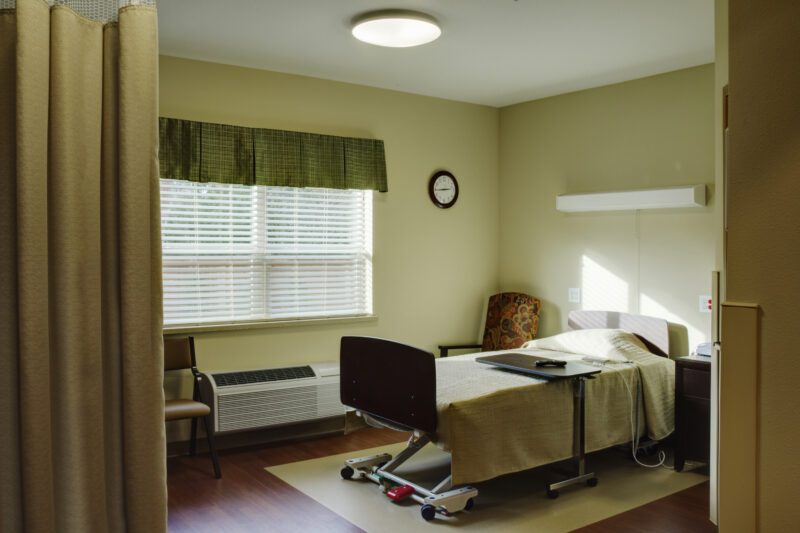As part of a yearlong project with ProPublica, The Maine Monitor recently published an investigation that found the state rarely sanctions residential care facilities in cases of elopement, in which older Mainers unsafely wander out of their facilities — a particular risk for people with dementia.
From 2020 to 2022, residents wandered away from Maine’s Level IV residential care facilities (which are generally known as assisted living facilities) at least 115 times.
In the vast majority of those cases, the state never inspected the facilities, conducting only a desk review or no investigation at all. Only two cases — one of which resulted in a death — led to sanctions.
Here are the main takeaways:
Elopement is a real risk
An analysis of state inspection records and a database of incidents reported to the health department found that residents wandered away from Maine residential care facilities at least 115 times from 2020 to 2022.
These cases of elopement — which the state defines as an incident in which a resident “unsafely wanders” out of a long-term care facility — are a real risk for residents with dementia. In Maine, which has the oldest population in the country, the number of people with dementia is projected to grow by 20 percent between 2020 and 2025.
The Maine Monitor and ProPublica found that at least 30 elopements took place at facilities that house people with severe dementia — despite the fact these facilities are required to be locked or otherwise secured to prevent residents from wandering away.
State takes little action
Experts said the health department should investigate every time a resident unsafely wanders away, but in 98 of the 115 incidents, investigators conducted only a desk review or no investigation at all.
A Department of Health and Human Services spokesperson said investigators decide not to take action for a variety of reasons, including because a facility has already moved to correct the underlying issue: “The Department takes seriously and investigates instances of elopement. A desk review is one type of investigation.”
In response to serious cases of elopement, DHHS can impose a fine of up to $10,000 or issue a conditional license that bars residential care facilities from accepting new residents for up to 12 months.
But from 2020 to 2022, state inspection records show, DHHS imposed sanctions for elopements on just two residential care facilities:
• In a December 2022 incident, a resident at Woodlands Memory Care of Rockland died after getting into a locked outdoor courtyard. No one from the facility noticed for nearly two hours.
• In an August 2022 incident, a resident of Frankfort Assisted Living was found standing in the middle of a busy road with her walker during a heat wave, appearing confused. When the passerby who found the woman brought her back to the facility, an employee told her no one had noticed she was missing.
In both cases, DHHS responded with the lowest level of intervention: requiring the facilities to submit a plan of correction.
This differs from how federal regulators respond to similar incidents in nursing homes. The Centers for Medicare and Medicaid Services imposed sanctions in response to at least 11 elopements in Maine that it investigated from February 2021 to February 2024, including issuing a fine of more than $71,000 to one nursing home.
What advocates say should change
Long-term care advocates and providers say it’s ultimately the responsibility of each residential care facility to make sure it has the capacity to meet the needs of all residents. But they say the state also needs to require more training on how to care for people with dementia, as well as increase minimum staff ratios.
A DHHS spokesperson said residential care facilities must ensure they have sufficient staff to meet the needs of their residents, but Nichole Lessard, the co-owner of Heron House, a Level IV facility in Cumberland, said the state’s staffing requirement is particularly lacking, calling it “scary,” “unsafe” and “completely inadequate.”
Residential care facilities with more than 10 beds are required to have one direct-care worker for every 12 residents during the day, one for every 18 residents in the evening and one for every 30 residents overnight.
Currently, facilities that don’t specialize in memory care aren’t required to provide training on dementia. Memory care facilities, meanwhile, are mandated to provide a one-time dementia training — but not ongoing training, which is required for nursing homes.
Susan Wehry, who directs AgingME, a program at the University of New England in Biddeford, said, “If a care home is going to take care of people living with dementia, they have a moral, if not regulatory, obligation to know what they’re doing.”







